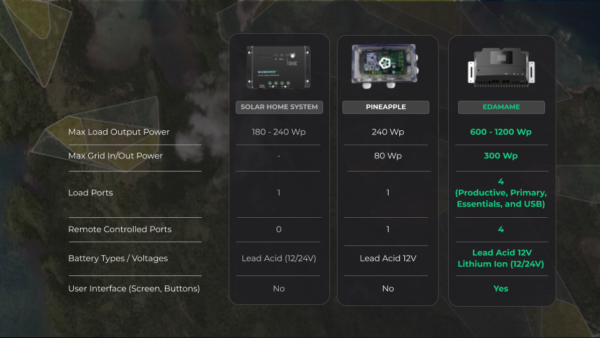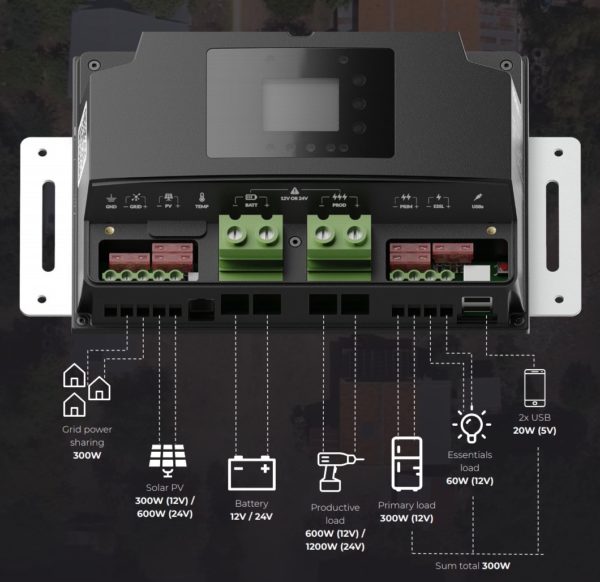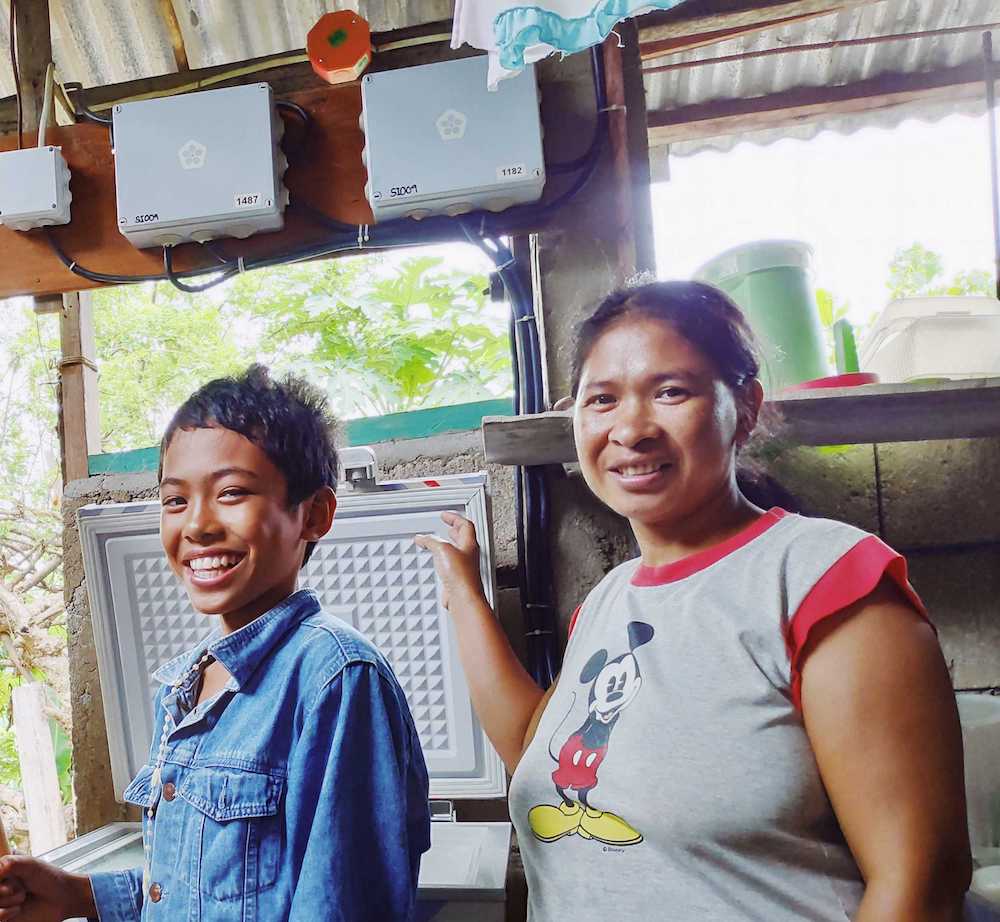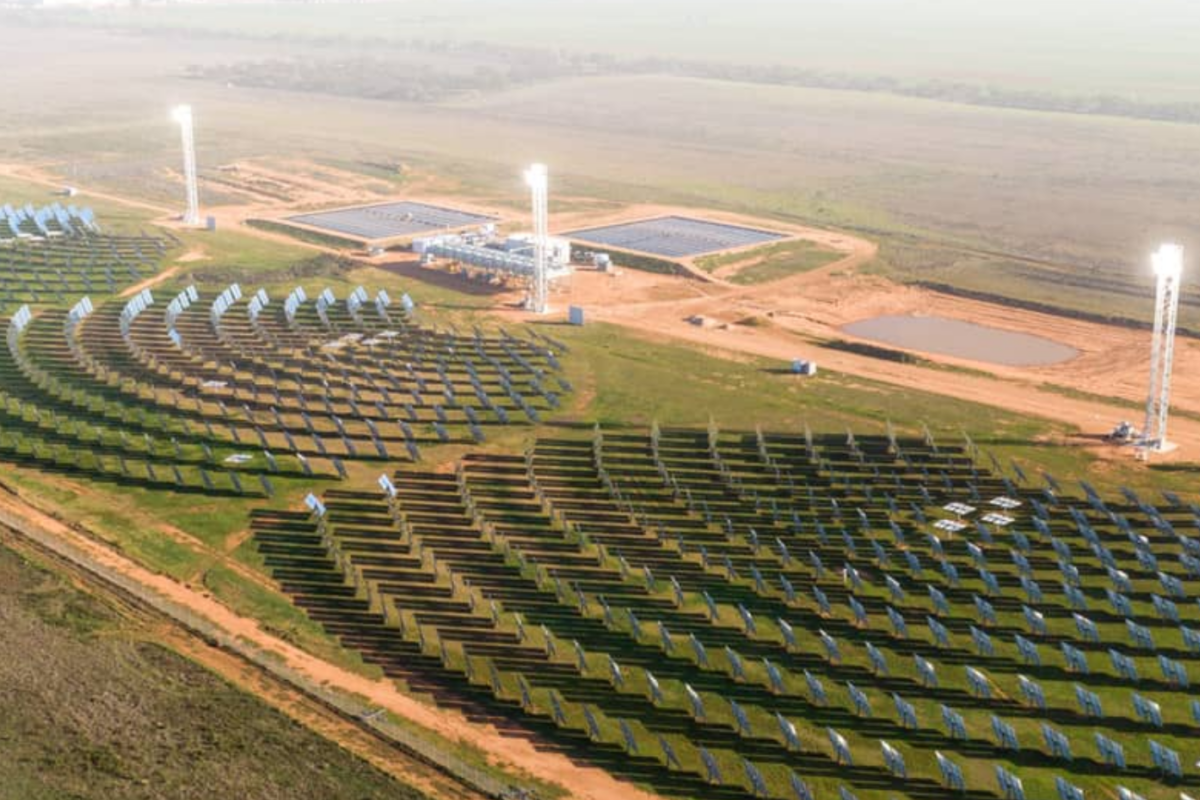pv magazine Australia readers will remember Okra Solar (Okra), the Aussie startup delivering solar mini-grids to remote communities from a ping-pong table in Cambodia. Since we last spoke to Afnan Hannan, Okra’s CEO and co-founder, the small team has taken significant steps toward its goal of eradicating energy poverty by helping remote communities leapfrog fossil fuels with solar.
Thanks to Covid-19, the Okra team are no longer rallying ideas back and forth over the ping-pong pong table but via digital whiteboards and google hangouts – the growing team, now 18 people, are currently situated in eight different countries as many returned home from Okra’s Cambodian regional base before borders closed.
However, despite the challenges imposed by the global pandemic, Okra has still managed to complete a convertible note round of funding and launch two new game-changing products: the Okra Edamame IoT Pod and the Okra Harvest software platform. Together these tools allow energy utilities to more easily access off-grid communities through the use of solar smart-grids.
Edamame
The Edamame Pod is a significant improvement on the previous Pineapple system, an improvement best seen in how the people utilise the solar power itself.
As has been observed almost everywhere on the planet, there is no such thing as enough energy. What Okra noticed in the villages that have gained access to energy through solar mini-grids is that while a community will start with the use of lights, fans and television, soon they’ll be hooking up massive speakers, refrigerators and electric cookers. This is to say, having a good old time, and why not?
But, of course, the more luxury the more power, and vice versa. That is where Edamame comes in, the pod enables higher instantaneous output draw (4x), and also higher PV in put (2x) and power that can be distributed over share line (4x), which means houses can use more power during any given day and thereby enabling the networks to grow according to the community’s need and festive calendar.

Another major improvement is that in addition to the same solar PV and lead-acid batteries working through Edamame, the new IoT device can now also support lithium-ion batteries, which, as we know, is cheapening by the day.
“Edamame has changed our outlook in the sense that it now is a more attractive draw for regulators and governments,” says Hannan. “We can actually say ‘hey you can install this modular network at about 1/10th the cost of grid extension and half the cost of a traditional hybrid mini grid and the households can use freezers and pumps and e-cooking (basically all the same things they would with the grid), and it’ll create local jobs and it gets done super fast’. And that makes it a lot more attractive for stakeholders.”

Harvest
Okra is the lubricant of getting solar into hard to reach places, and that is why the startup looks for ways to make things as easy for energy companies as possible. Once an IoT device like Edamame has connected a remote grid, the local energy company will still need to manage the project, its maintenance, payments and services. This is why Okra have developed the Harvest software platform, a way to enable scale through data and automation.
Harvest collects reams of information and provides energy companies with a macro-level snapshot of a mini-grid. At once the energy company can have an overview of its network, its maintenance call-out times, and payment rates.
African Future
In the short term, Okra is still strongly focused on South East Asia, where the Hannan feels the light at the end of the universal electrification tunnel is visible. That tunnel still represents about 250 million people living without power in hard to reach places such as rural Cambodia or outer islands in the Philippines.
However, in the long term, Okra is eyeing up Africa, a whole other “ball game” according to Hannan, “that we really need to be part of to make the meaningful impact we want to have. There’s about 80 million people in Nigeria alone without access to electricity and those that do have access to power often have about four hours of reliable power a day.”
Okra is planning on launching a pilot project in Nigeria by the end of the year to see if the startup’s tech (now including Edamame and Harvest) are applicable in a country whose population is expected to exceed that of the U.S. by 2050.
Investor Boost
Despite the economic anxiety brought on by Covid-19, Okra’s recent round of funding attracted some notable investors, including Schneider Electric, SADIF/MSP and Greenway Grid Global (a conglomerate of Tepco, Chubu Electric Power and ICMG partners).
In a statement, Okra made its message to its new and potential investors clear as sunshine: “Investment in off-grid energy empowers communities to increase income immediately – and with IoT and renewables, we can deliver energy at a lower cost than their income increases. In short – empowering communities can also be really profitable.”
There are still 900 million people who don’t have access to energy.
This content is protected by copyright and may not be reused. If you want to cooperate with us and would like to reuse some of our content, please contact: editors@pv-magazine.com.









Interesting: “Another major improvement is that in addition to the same solar PV and lead-acid batteries working through Edamame, the new IoT device can now also support lithium-ion batteries, which, as we know, is cheapening by the day. ”
That kind of adoption by 900 million people, even with a relatively simple 12/24VDC lithium ion battery energy storage, will create the need for more lithium ion batteries World wide, very possible it will create a cottage industry of reclaiming and repackaging old vehicle lithium ion batteries for home energy storage systems. Such “smart” systems could be used like bank accounts, instead of monetary savings, remote homes and villages could use a solar PV with battery storage and enhance the system a panel or more at a time and add batteries as overall energy requirements increase as one gets a refrigerator and a freezer, a small oven or microwave, more lighting, perhaps even a home computer that can video stream programming over a cell data channel to internet access. As the video screen captures of the three systems shows, one can accommodate increasing the system generation capability and energy storage capability in increments.